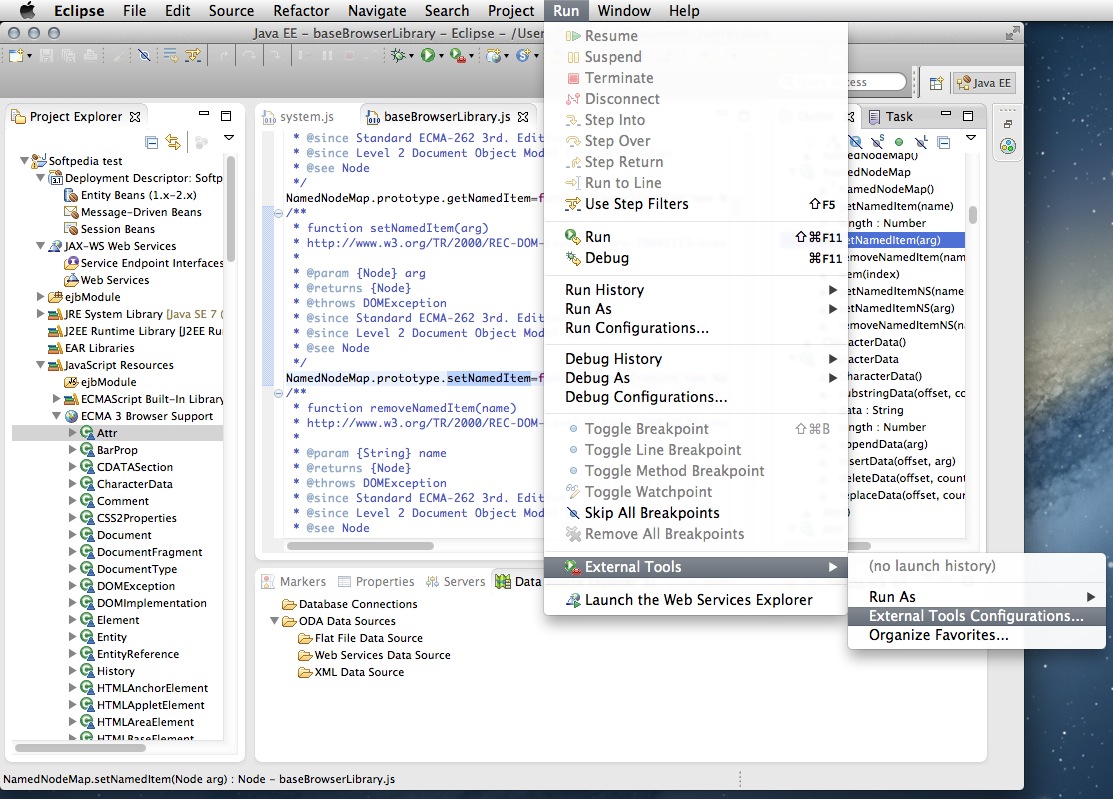Java 6 For Mac Free Download
Download Apple Java for OS X 10.6 for Mac to update Java components. What's new in JD-GUI 1.6.6: To analyze the source code of their applications, developers are using specialized applications that decompile the data and are able to display the info in an easy to read manner. JD-GUI is a small but efficient Mac app that can deal with “.class” Java files. Download Java - Java allows you to play online games, chat with people around the world, calculate your mortgage interest, and view images in 3D, just to name a few. This new version is considered.
This topic includes the following sections:
System Requirements for Installing the JDK on macOS
The following are the system requirements for installing the JDK on macOS:
Java 6 For Mac Download
Any Intel-based computer running macOS.
Administrator privileges.
You cannot install Java for a single user. Installing the JDK on macOS is performed on a systemwide basis for all users. Administrator privileges are required to install the JDK on macOS.
Determining the Default JDK Version on macOS
When starting a Java application through the command line, the system uses the default JDK.
After installing Java for macOS 2012-006, can I continue to use Apple's Java 6 alongside the macOS JDK for Java 13? If you want to continue to develop with Java 6 using command-line, then you can modify the startup script for your favorite command environment. Download JD-GUI for Mac - A Java decompiler designed for multiple platforms which enables you to analyze the source code of your application in an easy to read manner. Full-featured and quite simple to use tool for rapidly decompiling Java apps on the Mac platform. Mac OS X (Universal. Mar 23, 2016.
- Oct 23, 2014.
- Java, a runtime environment that works 'behind the scenes' to let you use many Web sites, online services, and applications, is no longer built in with Macintosh operating systems.Apple's October 2012 software update removes the Java plugin from all Web browsers. Following recent security vulnerabilities with Java, we recommend that Mac OS X users check their version of Java and keep it up-to.
You can determine which version of the JDK is the default by entering java -version in a Terminal window. If the installed version is 13 Interim 0, Update 0, and Patch 0, then you see a string that includes the text 13. For example:
To run a different version of Java, either specify the full path, or use the java_home tool. For example:
Java Jre 6 Mac Os X Download
$ /usr/libexec/java_home -v 13 --exec javac -version
Installing the JDK on macOS

- Download the JDK
.dmgfile,jdk-13.interim.update.patch_osx-x64_bin.dmg.Before the file can be downloaded, you must accept the license agreement.
- From either the browser Downloads window or from the file browser, double-click the
.dmgfile to start it.A Finder window appears that contains an icon of an open box and the name of the.pkgfile. - Double-click the
JDK 13.pkgicon to start the installation application.The installation application displays the Introduction window. - Click Continue.
- Click Install. A window appears that displays the message: Installer is trying to install new software. Enter your password to allow this.
- Enter the Administrator user name and password and click Install Software.The software is installed and a confirmation window is displayed.
.dmg file if you want to save disk space. Uninstalling the JDK on macOS
You must have Administrator privileges.Note:
Do not attempt to uninstall Java by removing the Java tools from /usr/bin. This directory is part of the system software and any changes will be reset by Apple the next time that you perform an update of the OS.
- Go to
/Library/Java/JavaVirtualMachines. - Remove the directory whose name matches the following format by executing the
rmcommand as a root user or by using thesudotool:/Library/Java/JavaVirtualMachines/jdk-13.interim.update.patch.jdkFor example, to uninstall 13 Interim 0 Update 0 Patch 0:
$ rm -rf jdk-13.jdk
Installation FAQ on macOS Platform
This topic provides answers for the following frequently asked questions about installing JDK on macOS computers.
1. How do I find out which version of Java is the system default?
When you run a Java application from the command line, it uses the default JDK. If you do not develop Java applications, then you do not need to worry about this. See Determining the Default JDK Version on macOS.
2. How do I uninstall Java?
See Uninstalling the JDK on macOS.
3. After installing Java for macOS 2012-006, can I continue to use Apple's Java 6 alongside the macOS JDK for Java 13?
Java 6 For Mac Free Download Crack
Java Jdk 6 Mac Os X Download
If you want to continue to develop with Java 6 using command-line, then you can modify the startup script for your favorite command environment. For bash, use this:
$ export JAVA_HOME=`/usr/libexec/java_home -v 13`
Some applications use /usr/bin/java to call Java. After installing Java for macOS 2012-006, /usr/bin/java will find the newest JDK installed, and will use that for all of the Java-related command-line tools in /usr/bin. You may need to modify those applications to find Java 6, or contact the developer for a newer version of the application.
4. What happened to the Java Preferences app in Application Utilities?
Free Java 6 Download For Mac
The Java Preferences app was part of the Apple Java installation and is not used by Oracle Java. Therefore, macOS releases from Apple that do not include Apple Java will not include Java Preferences.